Baron Roman Ungern, the rise and fall of the Mongolian "god of war"
Categories: History
By Pictolic https://pictolic.com/article/baron-roman-ungern-the-rise-and-fall-of-the-mongolian-god-of-war.htmlBaron Roman Fedorovich von Ungern-Sternberg was a descendant of an ancient German knightly family. Despite this, the baron despised Western civilization with every fiber of his soul and considered Europeans degenerates. Ungern's dream was to establish the world domination of the "yellow race" and the Civil War in Russia allowed him to start putting his crazy ideas into practice.
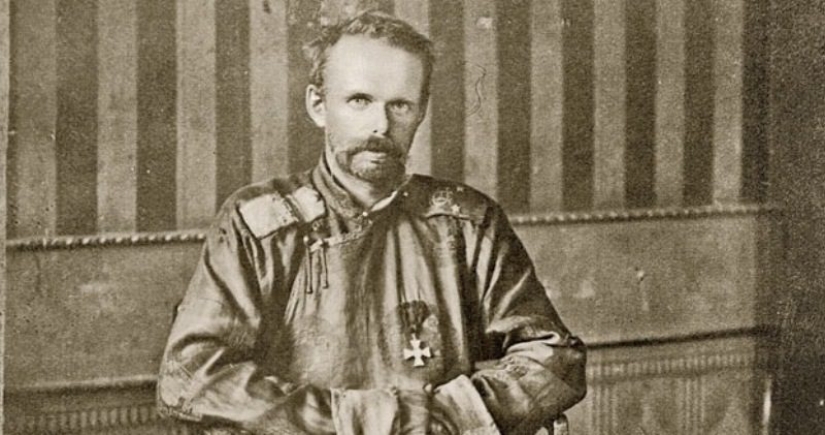
In the Mongolian steppes, Roman Fedorovich was idolized and considered the reincarnation of Genghis Khan, and Buddhist lamas praised him as a deity of war. Ungern managed to seize power in Mongolia and raise an army to conquer Europe. This "crusade" has become one of the most vivid and absurd episodes that the history of Russia is rich in in the first years after the October revolution.
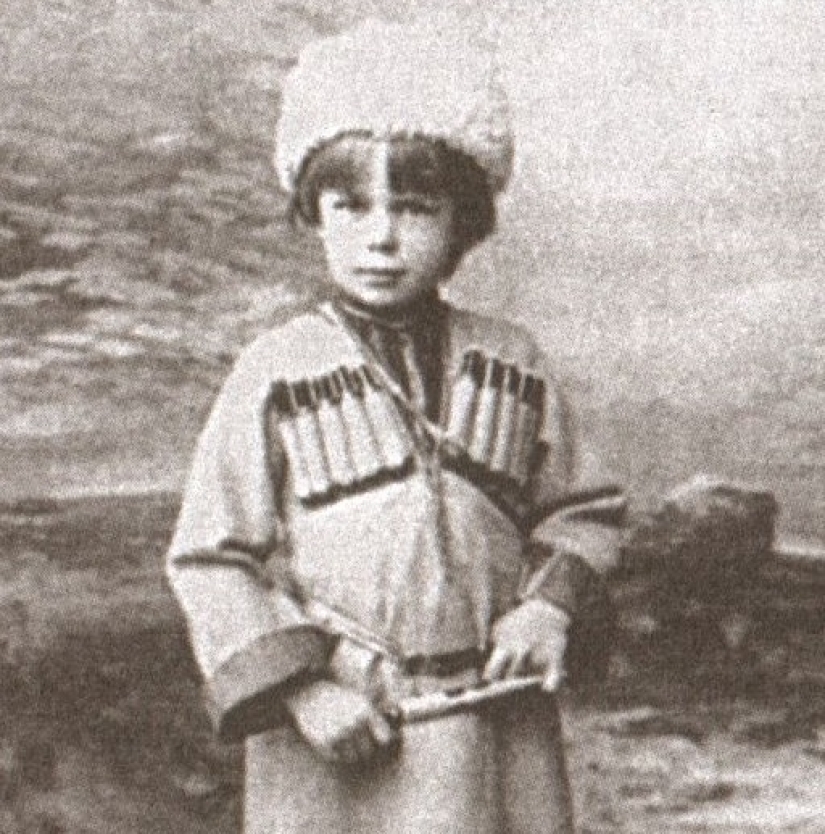
Roman Ungern, whose real name was Nikolai-Robert-Maximilian von Ungern-Sternberg, was born in Austria. The childhood of the future ruler of the Mongols was spent in The Baltic States, where several generations of his ancestors, the Ostsee Germans, lived. When the boy was 6 years old, his parents divorced and his father was replaced by his stepfather, with whom Roman had a great relationship.
In his early years, Ungern was not distinguished by exemplary behavior and a craving for study, so his parents' efforts to give him a good military education ended in failure. The young man was expelled from The Naval Cadet Corps in St. Petersburg for self-willed behavior and a naval officer did not turn out of him.
As soon as the Russian-Japanese War broke out, Ungern enlisted as a volunteer in an infantry regiment and went to the front. But fate willed that the descendant of the German knights escaped Japanese shrapnel: Ungern's military unit did not participate in the fighting, but was in reserve.
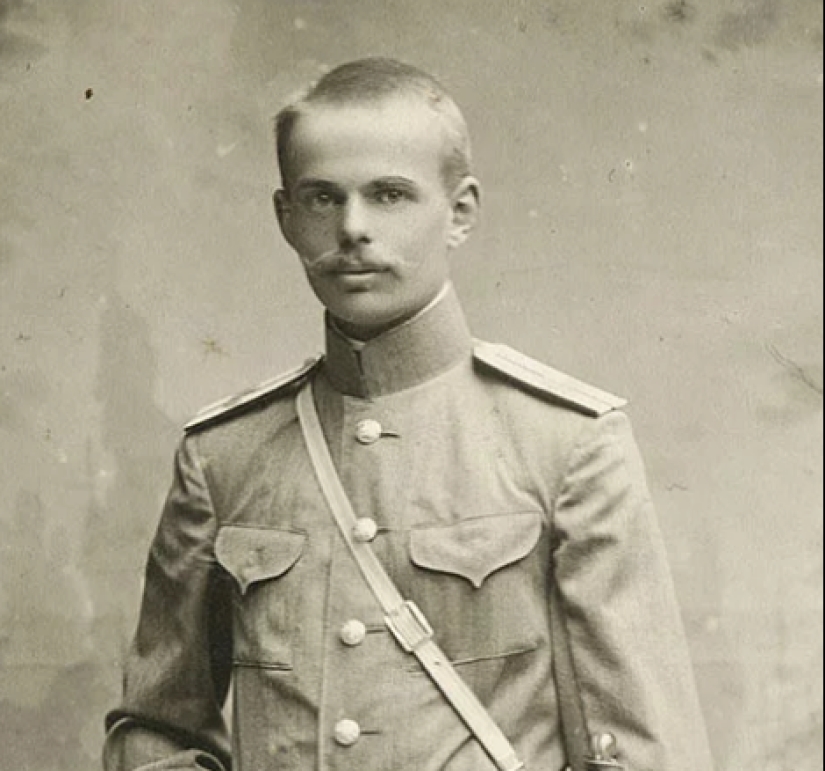
The young baron insisted that he be transferred closer to the theater of operations and his request was granted. To the chagrin of the Novel, while its translation was taking place, the war ended with the defeat of the Russian Empire. But in the active army, Ungern received the shoulder straps of a corporal and, most importantly, the desire to become an officer.
Ungern, who had already settled down without adventures, graduated from the Pavlovsk Infantry School and, with the rank of cornet, was enrolled in the 1st Argun Regiment of the Trans-Baikal Cossack Army. It is from this moment that the most interesting thing in his eventful life begins.
Roman Ungern did not have a very good reputation among his colleagues. The baron's colleagues remembered him as a hot-tempered, aggressive man, besides abusing alcohol. After getting drunk, the cornet became touchy and uncontrollable, arranging quarrels and desperate fights.
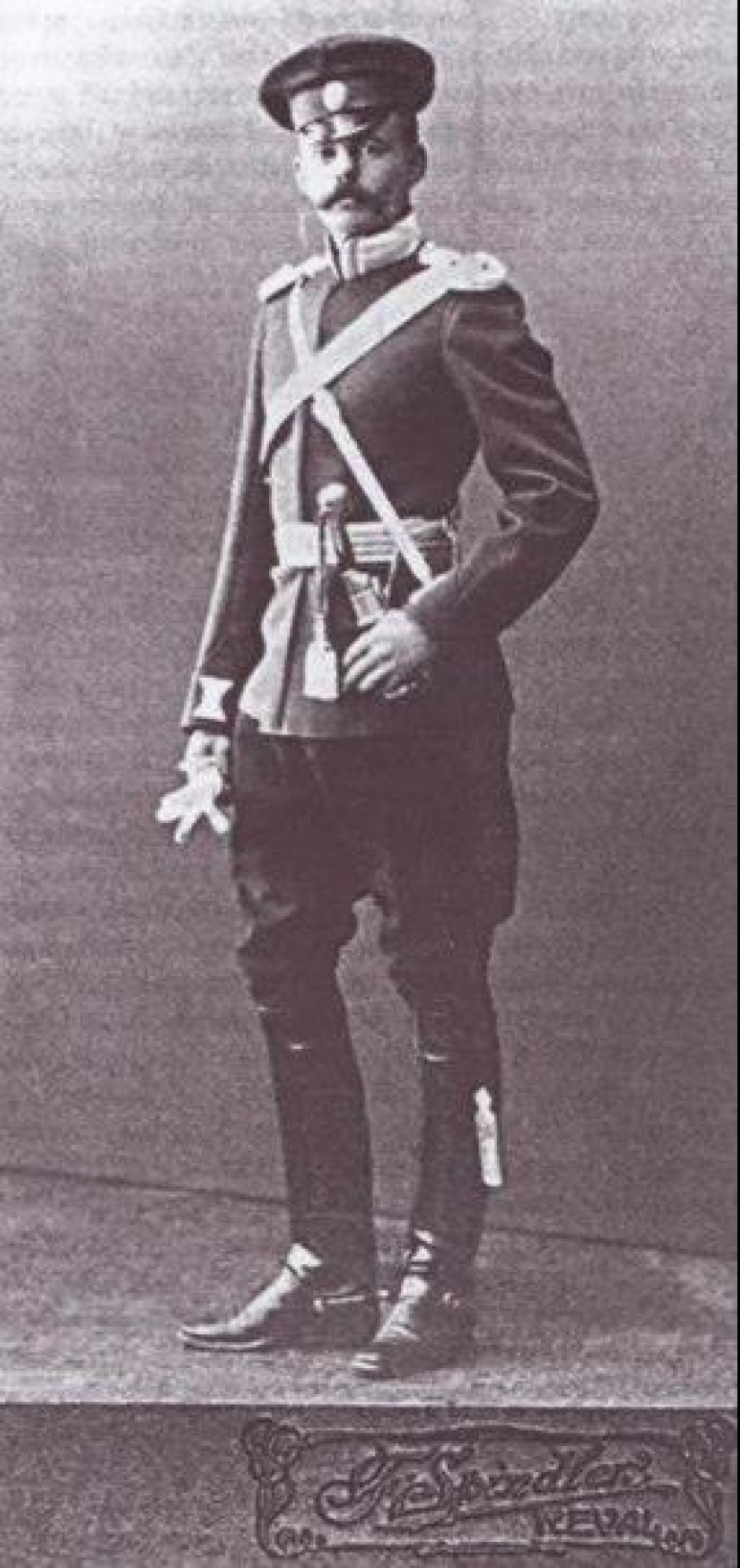
During one of the scuffles, he received a saber on the head, which caused headaches for the rest of his life. Ivan Kryazhev, one of Ungern's colleagues in the 1st Argun Regiment, later recalled him as follows:
But, despite his quarrelsome nature and oddities, Ungern was respected in the regiment. This man was distinguished by perseverance, straightforwardness and an unusual, poorly explained, from the point of view of logic, flair. One day Roman Ungern argued with the officers that, not knowing the road and unaccompanied by guides, he would drive from Dauria to Blagoveshchensk. The baron kept his word and overcame all 600 versts of wild taiga in the agreed time.
In 1913, Roman Fedorovich suddenly lost interest in military service and resigned from the army. But he was not attracted by the bright metropolitan life, nor the measured everyday life of the Baltic landowner. The baron went on a trip to Mongolia and returned from it only after receiving news of the outbreak of the First World War.
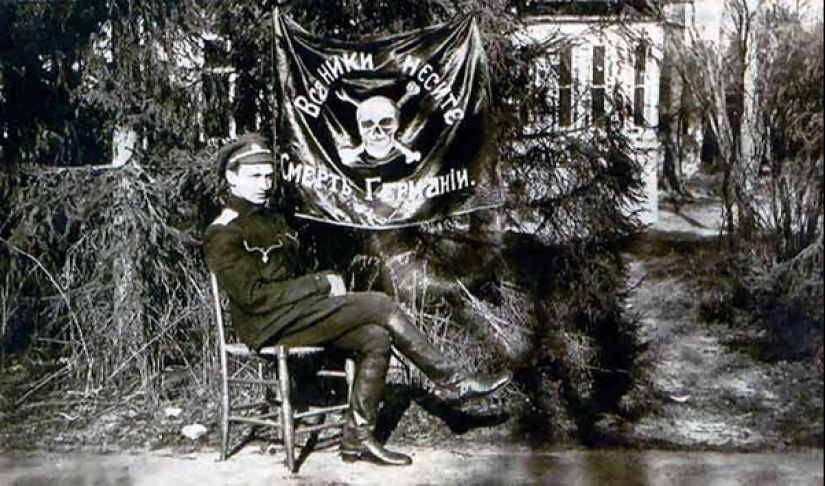
In 1915, Ungern, who had no combat experience, somehow managed to get into the Detachment of Special Importance of Ataman Leonid Punin, which was considered a special purpose unit in the Imperial army. The main task of the detachment was to conduct guerrilla subversive activities behind enemy lines.
But Ungern fully justified Punin's trust and in 1916, for conducting effective combat operations, he received the title of esaul. Baron Peter Wrangel, who was soon to lead the white movement, faced with Ungernom in the field and left such a memory about him:
But Yesaul Ungern's shyness was deceptive. Shortly after the meeting with Wrangel, the Cossack officer was sentenced to two months in prison for a fight with a duty officer of the military commandant's office of the city of Chernivtsi (now Chernivtsi, Ukraine).
As usual, the baron was drunk and, not wanting to obey the demand of an officer on duty, hit him on the head. For wartime, this was more than a serious offense, but they decided not to punish Yesaul strictly. By that time, Ungern already had five combat awards and the same number of wounds. After his release from arrest, the baron was dismissed from the regiment for misconduct.
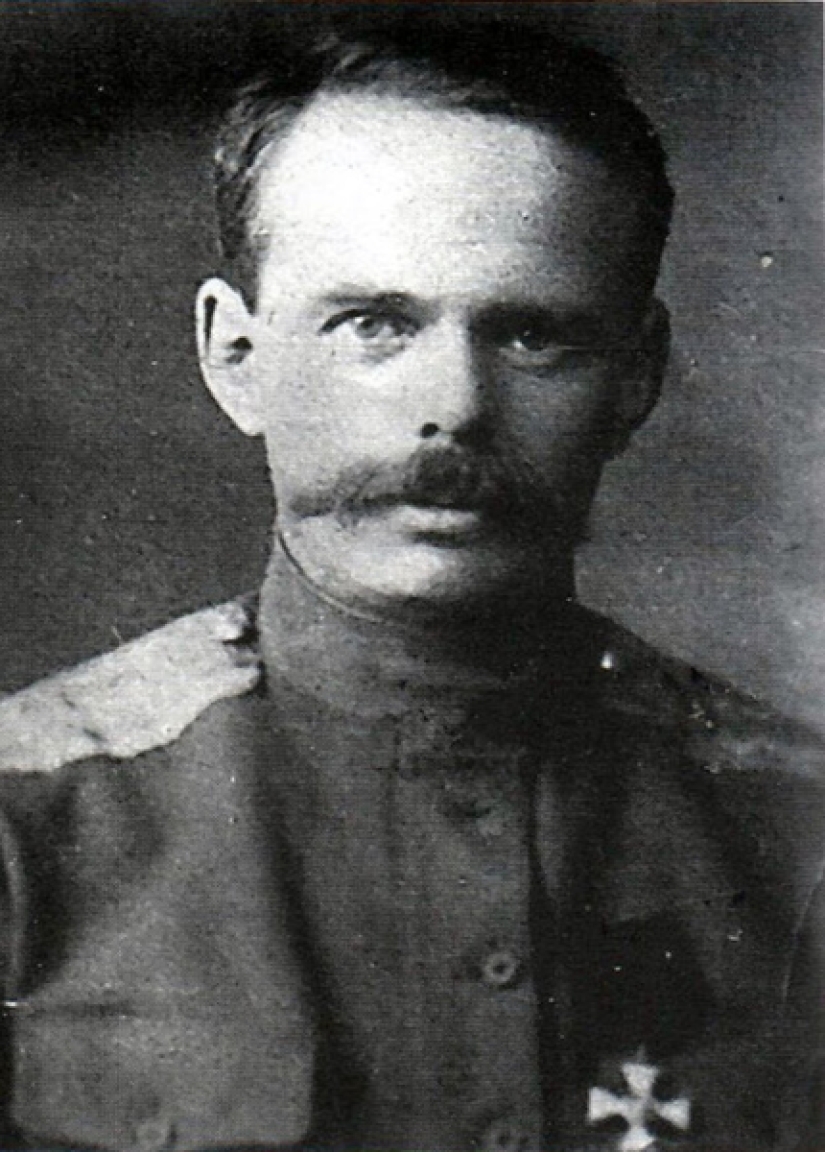
But everything was just beginning, because soon the February war broke out, and then The October Revolution. People like Roman Fedorovich Ungern have become worth their weight in gold, because it was reckless adventurers who became the driving force of the White Guard.
In the first post-revolutionary days, Ungern with a group of Cossack officers went to Lake Baikal, where Grigory Semenov was forming his army. The Cossack ataman, who was well acquainted with the baron, received him with open arms and immediately issued the shoulder straps of the lieutenant general. Ungern was given a serious task — to form an Asian mounted Division capable of effectively resisting the Bolsheviks.
The baron, who was well-versed in the local population, made the Mongols and Buryats, whom he knew as excellent warriors and skilled horsemen, the backbone of his division. Besides them, Bashkirs, Tibetans, Koreans, Tatars, Poles, Cossacks and even forty Japanese served in the detachment. All command positions in the division were held by Russian officers.
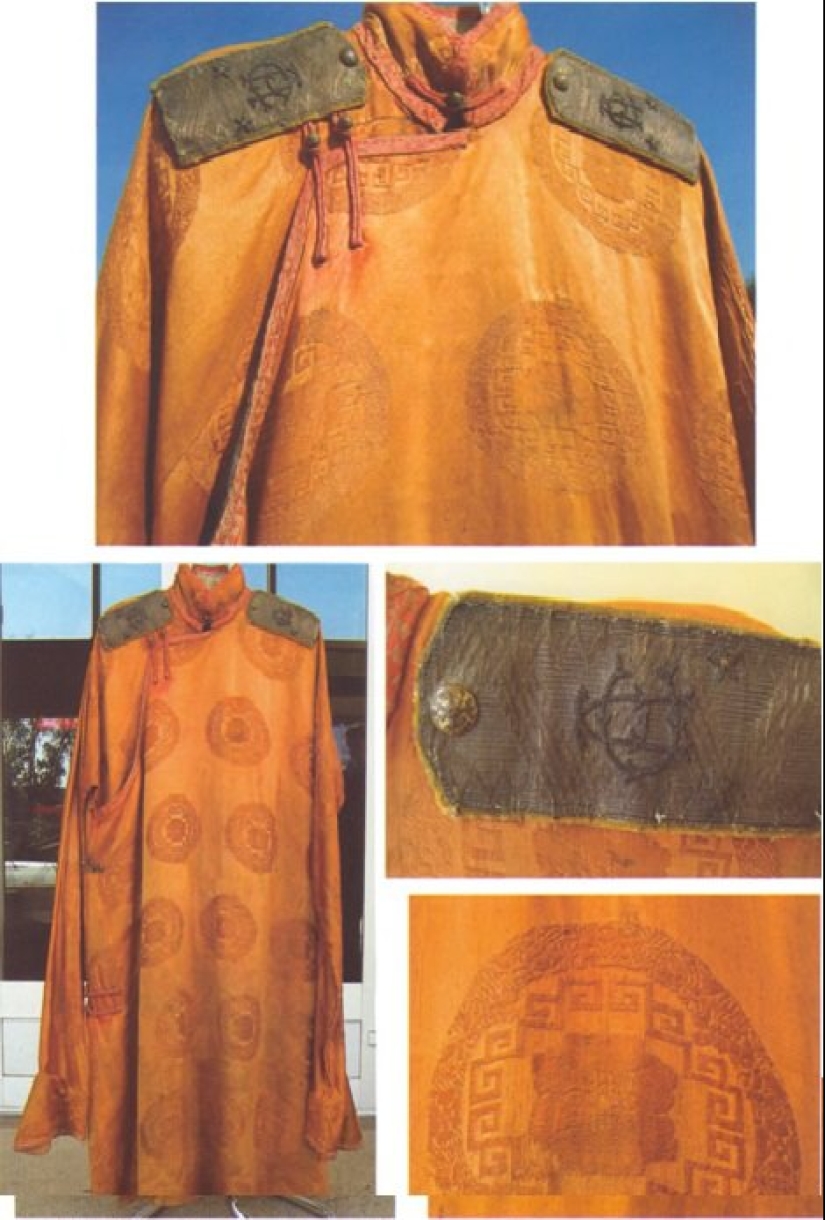
Ungern demanded very little from his subordinates — desperate courage and unquestioning obedience. Captain Nikolai Knyazev, who served in the division from the first days of its foundation, said that General Ungern spoke about his fighters like this:
And, I must say, Roman Fedorovich managed to recruit enough such thugs. When there were 2,400 fighters in the cavalry division, the baron, with minimal supplies, went on a military campaign and captured the whole of Dauria in a short period of time. In fact, Ungern became the ruler of Transbaikalia and the only power in the region.
Knyazev, already mentioned by us, wrote in his memoirs that discipline in the 1st Asian Division was iron, which was greatly facilitated by the atmosphere of distrust. Ungern encouraged headphones, so his subordinates shamelessly denounced each other. They were afraid of the baron himself, because they believed that he was associated with evil spirits. The Mongols were sure that their commander was an invulnerable "god of war" and wild wolves were helping him find the way to the Daurian steppe.
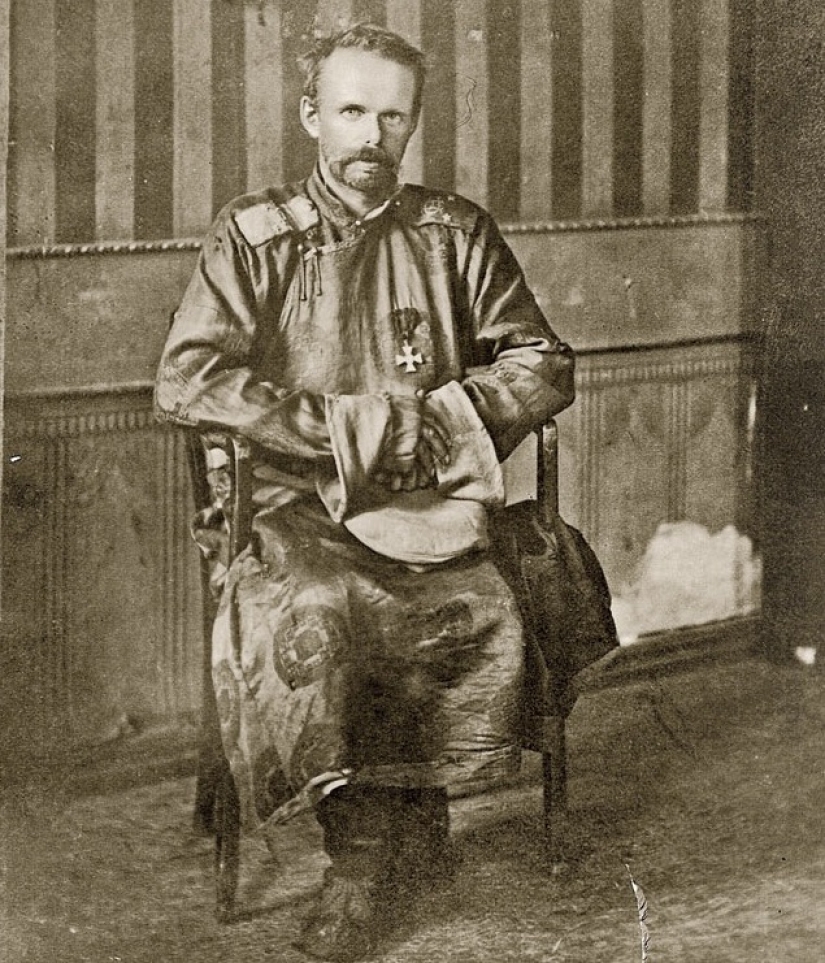
For minor sins in the division, they were punished with bamboo sticks, and for more serious ones — with death. Ungern was famous for his ingenuity in inventing executions and was rarely repeated. People were shot, quartered, torn apart by horses, impaled or burned alive. The general also did not stand on ceremony with the prisoners and left their corpses in a prominent place for intimidation.
The baron's division was accompanied everywhere by packs of jackals, wolves and carrion birds, which only strengthened people's faith in the supernatural power of the general. His marriage with a Manchurian princess, concluded in 1919, contributed a lot to strengthening the baron's authority — after that he became "his own" in the Mongolian camps.
In the intervals between battles and executions, Ungern pondered his idea of a "crusade" against Europe, which, in his opinion, had defiled itself with luxury and haggling. The dreamer's plans were to create a new Mongol empire from the Pacific and Indian Oceans to the last sea, which Genghis Khan never managed to reach.
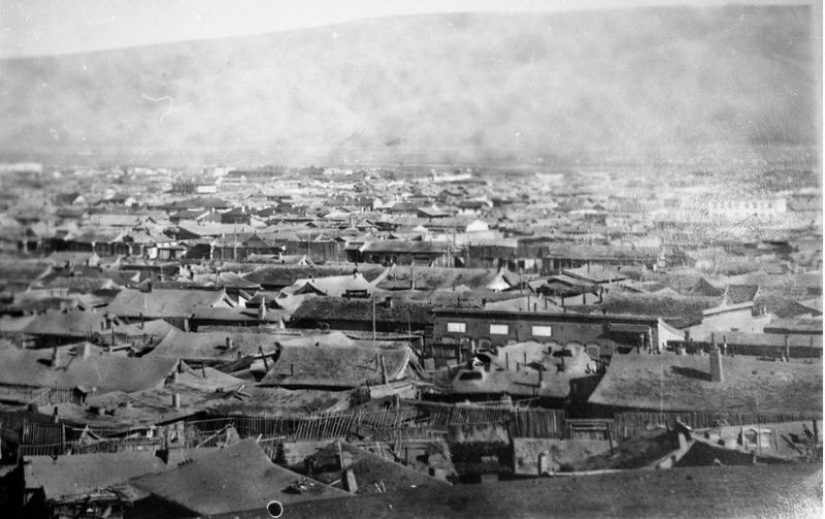
Having caught fire with his idea, the general gives up the fight against the Bolsheviks and, together with his division, goes to storm the Chinese-captured capital of Mongolia, Urga (now Ulaanbaatar). This city, resembling a huge camp, was the residence of Bogdo-Gegen, the theocratic leader of the country and the head of the Mongolian Buddhists.
In Ungern's detachment there were only 1,460 people, while in Urga has a 10,000-strong Chinese garrison with machine guns and artillery. After making two futile attempts to capture the city, the baron turned to guerrilla warfare. He was supported by Buddhist lamas who sent a detachment of Tibetans to help, as well as Mongolian Noyon princes who announced mobilization among their subjects.
The day before the decisive assault, Roman Fedorovich went to investigate personally, on horseback and dressed in Mongolian clothes. The baron entered the city unhindered, talked with the servants of the Chinese governor and inspected his house from the outside. Finally, he hit the Chinese sentry who had fallen asleep at the post with a cane, explaining to him in his own language that this could not be done. After these desperate adventures, Ungern quietly left Urga and returned to his small army.
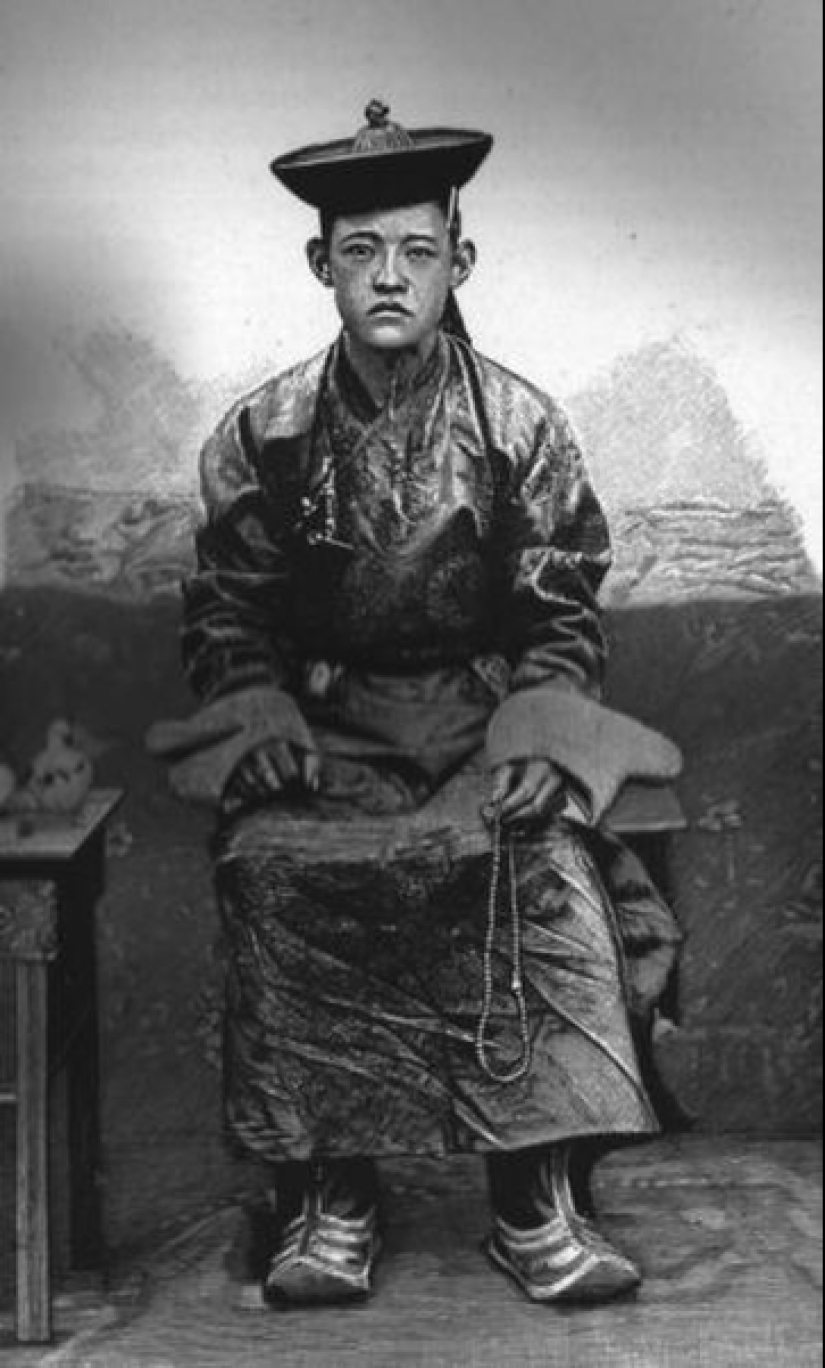
On February 4, 1921, Ungern's detachment again stormed Urga and, after bloody street battles, captured the city. First of all, all Jews were slaughtered in the capital, and their property was looted. On February 22, the coronation of Bogdo-Gegen VIII, whom the baron made the ruler of Mongolia, took place. Of course, Roman Ungern received the actual right to govern the country on behalf of the puppet ruler.
By the spring, Ungern's army managed to completely dislodge the Chinese from Mongolia and it was time to realize the main idea — a march on Europe. On May 15, 1921, Roman Fedorovich issued "Decree No. 15" announcing the beginning of the campaign in Russia.
The baron, who by that time was already considered a great commander and the embodiment of Genghis Khan, had more than 11 thousand armed horsemen of 15 different nationalities under his command. Ungern's original goal was to organize an anti-Bolshevik uprising in Irkutsk province and Transbaikalia, and then on Altai.
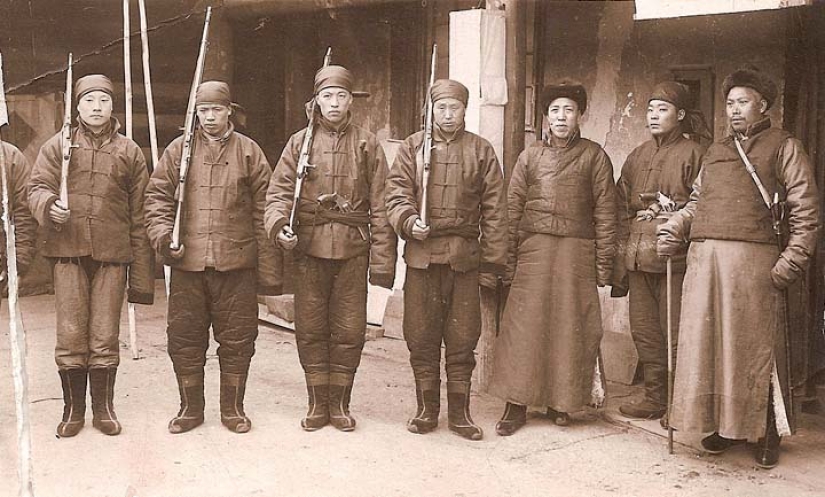
The Japanese and his old friend Ataman Semenov promised to support the Baron, so he felt invincible. But the allies did not keep their word and a large but absolutely wild horde of the "new Genghis Khan" suffered a crushing defeat from the Red Army.
In August 1921, the baron, having divided the remnants of his troops into two parts, began to make his way from Eastern Siberia to the mountains of Tibet. On the way, Ungern unleashed his rage, executing his subordinates right and left, who began to lose faith in his divine essence. Because of this, a mutiny broke out in the detachment, but Roman Fedorovich fled to the steppe.
The career of the failed ruler of the world ended unexpectedly prosaically — he was captured by the Red partisans, commanded by Pyotr Shchetinkin. On September 15, 1921, a short trial took place, during which the baron was quite rightly accused of anti-Sovietism and mass killings of civilians.
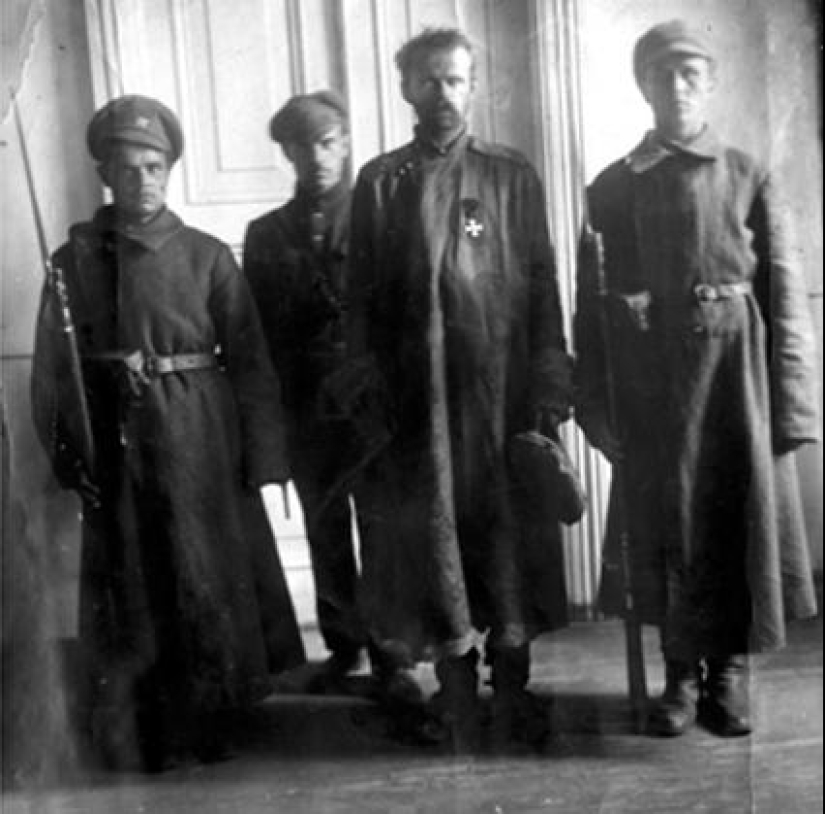
The punishment at that time for the Bolsheviks was one — execution. The sentence was carried out immediately after the announcement, and the body of the descendant of the German knights was buried in an unknown place. The name of Baron Ungern did not excite the minds of the Mongols for long, and soon the "demon of war" was remembered only in connection with the search for the mythical treasury of the Asian Division, which, according to rumors, he managed to hide safely before his capture.
It must be said that enthusiasts are still looking for these treasures in Transbaikalia and Mongolia, and the personality of the baron himself was surrounded by a halo of mysticism, making him an iconic figure of eastern esotericism.
Recent articles

It's high time to admit that this whole hipster idea has gone too far. The concept has become so popular that even restaurants have ...

There is a perception that people only use 10% of their brain potential. But the heroes of our review, apparently, found a way to ...

New Year's is a time to surprise and delight loved ones not only with gifts but also with a unique presentation of the holiday ...